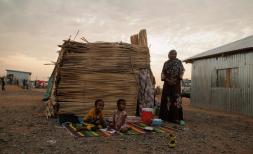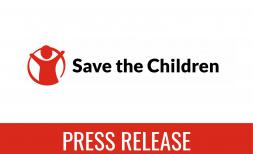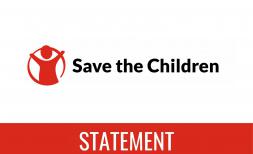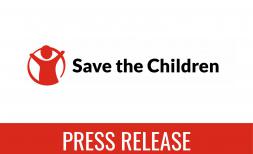Climate crisis forces Indian children from homes and schools
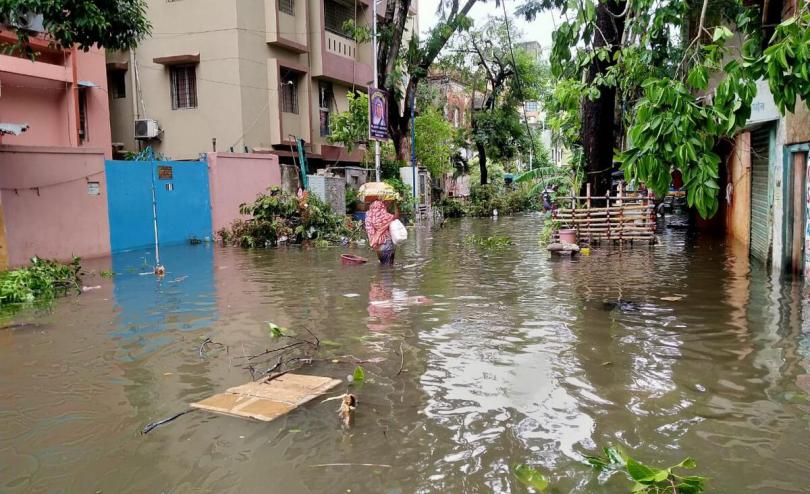
New Report from PwC India-Save the Children: COVID-19 must not divert attention from climate crisis’ impact to protect a generation.
The increase of extreme and erratic weather events like floods, cyclones and erosions in disaster prone areas in India is deeply impacting the lives of children and their families. As a result, children are forced to leave their homes and schools, it hampers their health and family livelihoods, and it limits their access to health care.
Save the Children and PwC India warn in their study ‘Protect a Generation: Climate security for India’s children’, which was launched today, that the COVID-19 pandemic has further increased the risks.
The report, based on a year-long study across three states of Uttarakhand, Madhya Pradesh and West Bengal covering floods, droughts and cyclones, aims to document the impact of climate change on children and suggests key risk mitigation strategies to develop a roadmap for a climate resilient future for children in India.
Some of the other key findings of the study include:
- At least 60% of the households said climate crises impacted their economic situation.
- Up to 90% saw a negative impact of climate crises on drinking water.
- Up to 75% of the households saw their houses damaged by climate crisis-related events.
- Up to 14% of the respondents knew at least one family member that migrated because of a climate-related disaster. In some areas, up to 20% of the respondents intended to migrate.
- Depending on the region, up to 58% of respondents said that their children faced health issues such as dehydration, skin diseases and allergies due to rising temperatures
- In several districts, more than 50% said that children could not play outside due to the heat.
The report also suggests measures to work towards a climate resilient future such as stepping up child welfare schemes, enabling healthcare during crises, climate proofing of infrastructure, using climate smart agriculture, sustainable water management and ensuring children are protected during disasters. Incorporating these strategies into existing policy decisions could go a long way in mitigating the impact of climate change on children, the organisations said.
Jaivir Singh, Vice Chairman PwC India Foundation said, “Through this research, we have tried to voice the challenges faced by vulnerable children and have sought to provide a series of practical and feasible strategies that are essential to building resilience in the face of increasingly frequent and complex climate change induced disasters. We hope that this report forms the basis for further evidence building, informed advocacy and policymaking to create a sustainable change in the lives of children in India and beyond.”
Sudarshan Suchi, CEO of Save the Children in India said, “The climate and environmental crisis is an intergenerational child rights crisis that threatens children’s survival, learning and protection around the world today and tomorrow, with the most marginalised and deprived children at greatest risk. The report highlights the impact of such disasters on marginalised and vulnerable children.”
The study found that vulnerable families and children are hardest hit by the impacts of the climate crises, as they are often less able to adapt to new circumstances. Families reported children suffered from dehydration, skin diseases and allergies due to rising heat and a lack of drinking water. Children missed out on school as families had to temporarily flee their area after climate related disasters struck and schools were hard to reach. Families also reported a lack of health care in the aftermath of disasters, as hospitals were damaged or hard to reach.
Children are uniquely susceptible to physical and emotional harm during extreme weather events especially if they are unaware of how to respond to danger, or have the support they need to recover from the emotional distress caused by climate-related disasters such as loss of loved ones and homes. Schools may be damaged or hard to reach further limiting their access to support services.
The report noted an increase in frequency and intensity of erratic weather, with three in four households in most districts saying rainfall had decreased, and more than 50% of the respondents reporting that extreme weather events like floods, cyclones and erosions had become more hazardous and frequent in the last 10 years, increasing risks for families’ livelihoods, health, nutrition and child rights.
The report, also aimed at identifying measures to support families who face the consequences of the changing climate, is a strong call for the implementation of child-focused strategies to support future generations and the authorities in coping with the impact of the crisis.
To help communities build up resilience, the report urges authorities and other actors to:
- Strengthen childcare and welfare schemes, and train frontline workers such as health professionals and teachers to identify households in distress.
- To roll out information services including apps with health information in disaster prone areas, which should also accessible to those with lower levels of literacy.
- During and after crises, child-friendly spaces where children can recover and share their experiences, need to be made available.
- Infrastructure must be adapted to withstand climate impacts, and some areas need to be equipped with early warning systems against rain-induced landslides.
- Special programmes targeting vulnerable communities should be set up to strengthen alternative livelihoods, so families do not need to move elsewhere to be able to survive.
To raise awareness around the impacts of climate change on children, the #RedAlertOnClimate campaign has been launched on social media.
Notes to editors:
For the report, the team interviewed 636 households in 12 blocks in Madhya Pradesh, Uttarakhand and West Bengal.
A detailed vulnerability, risk and impact assessment was carried out in three states with varying geographies (Madhya Pradesh, West Bengal and Uttarakhand), with the aim of providing insights into hazards, exposure and vulnerabilities of children, adaptation practices of the community and the effectiveness of the mitigation practices employed by various Civil Society Organisations. The states were selected based on their distinctiveness in terms of the geo-climatic zones as well as exposure and extent to climate hazards. A detailed survey using quantitative and qualitative methods and analysis were conducted to explain the impact of multiple climate change induced insecurities related to livelihood, health, hygiene, nutrition and education, etc., on children.
PwC India Foundation was established in 2008 with the objective of making an impact in the areas of education and environment sustainability. Its thematic focus areas are currently water, sanitation and hygiene (WASH), social entrepreneurship, issues of urban children, education and environment sustainability. Humanitarian response in times of disaster is embedded in its core objectives. https://www.pwc.in/pwc-india-foundation.html
Save the Children works on issues related to education, health, protection and humanitarian/DRR needs of children, especially for those who are the most deprived and marginalized. Save the Children's association with India is more than 80 years old. Visit www.savethechildren.in
Any enquiries or requests for spokespeople, kindly contact:
Devendra Tak, +91 9811168488 or d.tak@savethechildren.in
Out-of-hours: Media@savethechildren.org.uk / +44 7831 650 409
